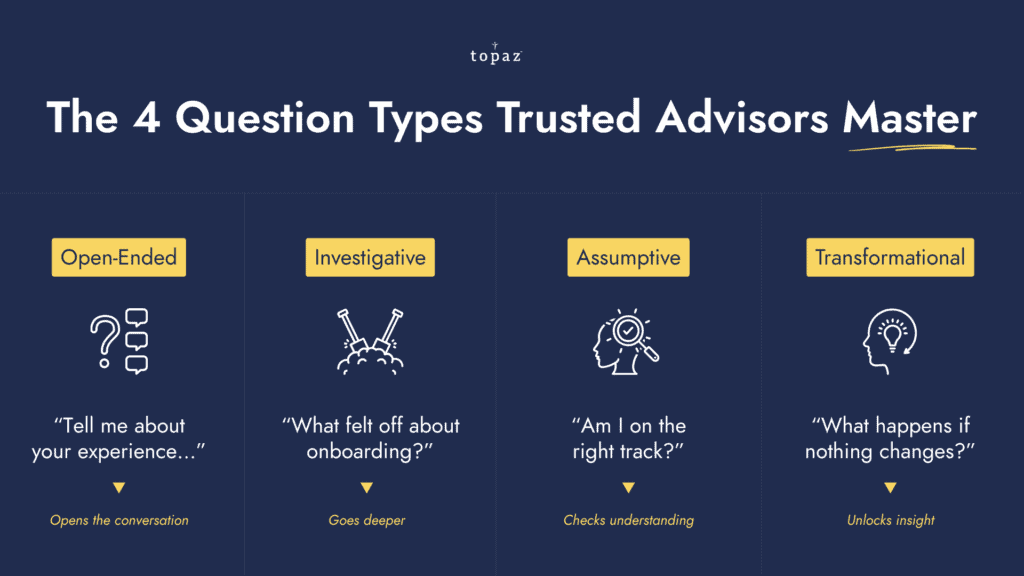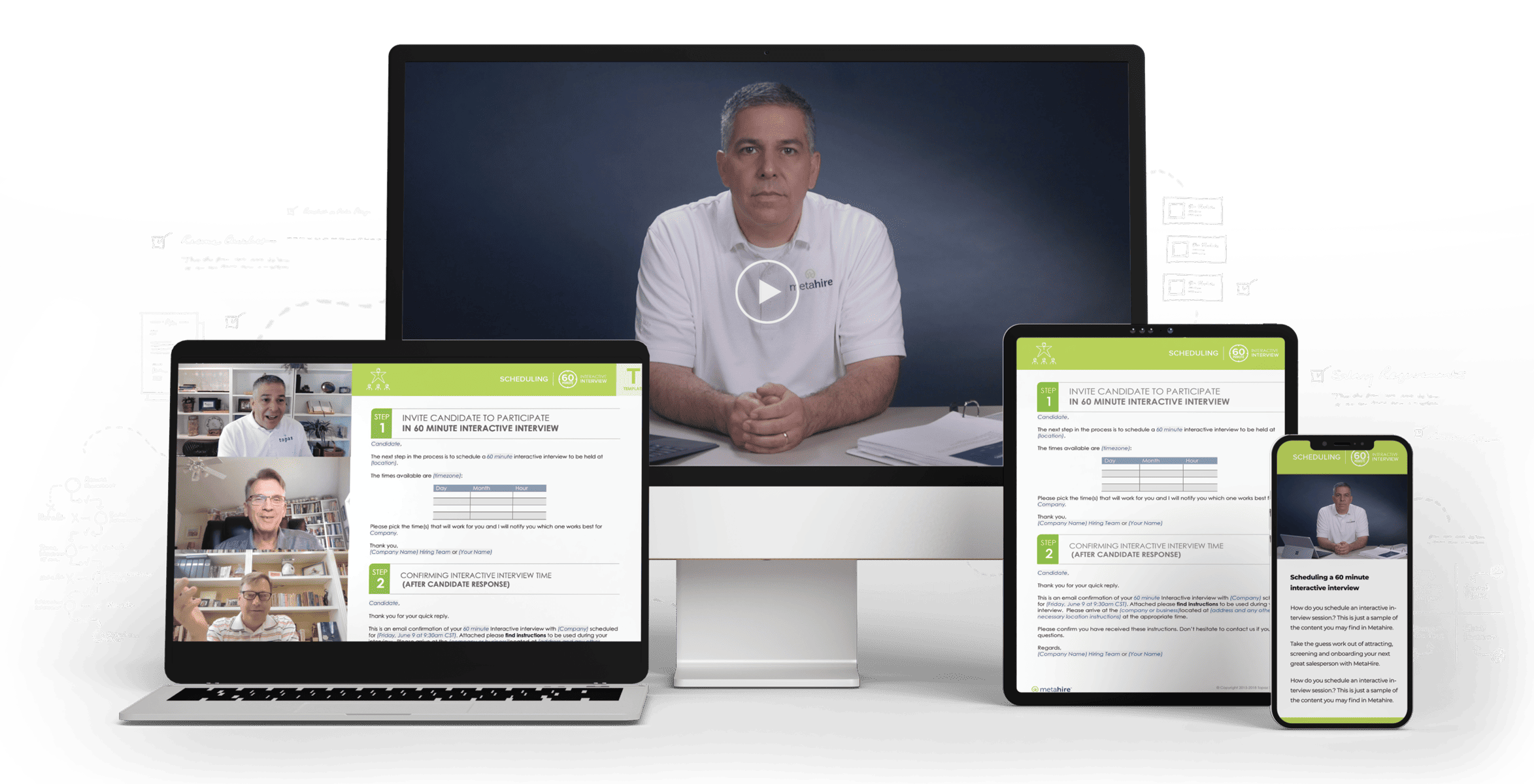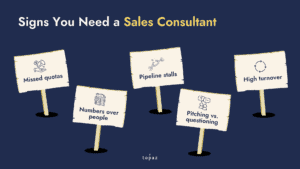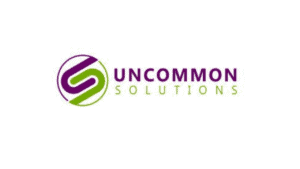The Questions That Separate a Sales Expert From a Salesperson
Most salespeople are trained to talk. They hear a few key details from a prospect and jump straight into education mode, pitching, presenting, and persuading. It sounds helpful on the surface. But underneath? It’s often just a string of well-polished assumptions.
At Topaz Sales Consulting, we believe there’s a better way. The best salespeople, the ones who become trusted advisors, don’t tell; they ask. And they don’t ask just any questions. They ask the kind of questions only a true sales expert would think to ask.
Let’s unpack what that really means and how your team can get there, too.

Why Traditional Salespeople Default to Assumptions
We all make assumptions. It’s human. Our brains are wired to shortcut, fill in gaps, jump to meaning, and avoid ambiguity. The traditional salesperson hears a prospect say, “We’re looking to reduce costs,” and assumes they know what that means. Out comes the cost-savings pitch.
But what if “reduce costs” actually means “our last vendor overpromised and underdelivered, and now the CFO won’t approve a single contract unless they see hard evidence it works”? You just missed the real story and the real opportunity.
Assumptions feel efficient. They give a salesperson the illusion of progress. It’s easier to launch into a polished presentation than it is to slow down, admit you don’t fully understand, and ask a question that might reveal the truth. Unfortunately, this “rush to solution” mindset is one of the biggest reasons sales conversations stall, lose trust, or go cold.
This is where most sales teams fall short, especially if they haven’t gone through rigorous sales training that prioritizes inquiry over instruction. Without the right framework, traditional reps fall into what we call “free consulting” behavior. They hear a few surface-level pain points, mentally connect them to their offering, and start pitching what they think the buyer needs.
It’s not bad intention. It’s bad process.
In contrast, a trusted advisor doesn’t react; they reflect. They recognize the temptation to assume and instead use those assumptions as prompts to ask deeper, more insightful questions. This is the kind of mindset shift Topaz Sales Consulting trains into every salesperson we work with. We don’t just teach what to say, we train sales professionals how to think like advisors and facilitators, not pushers of a pitch.
Here’s the truth: every time you assume, you trade understanding for speed. And in a world where buyers are increasingly skeptical, that’s a trade you can’t afford to make.

Sales Experts Identify Their Assumptions Then Flip Them
Topaz-trained salespeople are taught to slow down and listen not just to what’s said, but what’s unsaid. When they notice themselves jumping to a conclusion, they don’t suppress it. They name it, pause, and then convert that assumption into a thoughtful question.
Let’s say you assume the client has no authority to make a decision. Instead of running with that belief, a Topaz-trained rep might say:
“I’m wondering if this is something you’d be evaluating on your own or if others need to weigh in?”
By identifying the assumption and asking about it, you’re building trust instead of building a pitch.
Four Types of Questions Used by Trusted Advisors
Top-performing sales professionals don’t just ask more questions; they ask smarter questions. The kind that shifts conversations, uncovers hidden pain, and builds credibility without posturing. At Topaz Sales Consulting, we train salespeople to become trusted advisors by mastering four core types of questions that go beyond surface-level discovery.
Each question type serves a specific purpose in helping the buyer feel heard, understood, and empowered to move forward.
1. Open-Ended Questions: Invite Exploration
These are the foundation of any strong discovery conversation. Open-ended questions encourage the buyer to reflect, expand, and tell their story in their own words.
Instead of:
“Are you happy with your current provider?”
Try:
“What’s been your experience working with vendors in this space?”
This type of question creates space. It signals that you’re not rushing to solve the problem. You’re here to understand. Open-ended questions reveal priorities, emotional drivers, and unspoken frustrations that traditional yes/no questions would never uncover.
2. Investigative Questions: Dig Deeper
Once a buyer shares a surface-level concern, it’s your job to gently probe beneath it. This is where investigative questions shine. These questions are often “second layer” inquiries designed to clarify, expand, and add context to what’s already been said.
For example:
“You mentioned onboarding was an issue. What specifically felt disjointed about it?”
Investigative questions show that you’re listening closely and care about the details. In sales training, we refer to this as active curiosity. The kind of curiosity that builds trust because it’s genuine, not scripted.
3. Assumptive Questions: Check Your Hunches
Here’s where Topaz-trained reps stand out. Instead of avoiding assumptions, they identify them and turn them into respectful assumptive questions that seek validation, not confirmation.
For example:
“It sounds like there’s been pressure to prove ROI more quickly lately. Am I on the right track?”
This kind of question shows confidence without arrogance. You’re not declaring; you’re exploring. When used correctly, assumptive questions accelerate clarity and reveal hidden stakeholders, urgency, or decision-making dynamics that the buyer may not have yet identified.
4. Transformational Questions: Challenge the Status Quo
Transformational questions are what take you from salesperson to trusted advisor. They’re bold, reflective, and often a little uncomfortable in a good way. These questions help buyers see their situation in a new light and imagine the cost of inaction.
Try something like:
“If nothing changes in the next 6 to 12 months, what does that mean for your team or your clients?”
Or:
“What’s the risk of staying where you are, even if it feels safer today?”
Transformational questions unlock insight and momentum. They often lead to moments where the buyer stops, reflects, and says, “No one’s asked me that before.”
And when you reach that moment, you’re not just selling, you’re helping them buy.
Pro Tip: Validation Statement as a Question
Sometimes, a statement posed as a question can be just as powerful.
“Feels like there’s a lot of weight on your shoulders right now… is that fair?”
This type of validation opens the door to emotional truth. It’s disarming. It shows empathy. And when done well, it helps the buyer lower their guard because they feel understood, not analyzed.
Using these four question types and a statement (and learning when to apply them) is one of the most valuable skills a salesperson can develop. It’s not just about closing deals. It’s about creating conversations buyers want to be in. Conversations that clarify thinking, uncover truth, and build trust.

What About When You’re Stuck? Use the Pain Generator
Sometimes, you need help crafting questions that matter. That’s where the Topaz Pain Generator comes in. It’s an AI tool designed not just to help you sell, but to help you think more clearly so your questions reflect insight, not assumption. The Pain Generator guides you through a proven process for creating customized, high-impact pain questions tailored to a prospect’s specific situation.
Being a sales consultant or sales expert isn’t about sounding smart. It’s about staying curious. It’s about holding back your expertise just long enough to let the client feel seen, heard, and understood.
When you ask the right questions, not just the obvious ones, you become more than a salesperson. You become someone worth trusting.
And trust, not a great pitch, is what closes deals.
If you’d like help turning your team into trusted advisors who ask better questions and close with integrity, let’s talk. Sales training done the Topaz way isn’t about scripts. It’s about equipping people to think for themselves and help others do the same.






